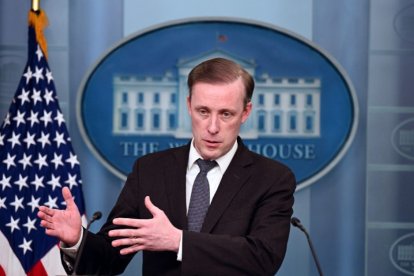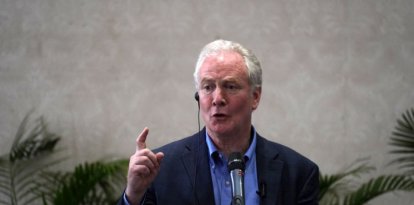The US refuses to sign a defense agreement with Saudi Arabia if it does not first normalize relations with Israel
The national security advisor explained that the intention is to reach a tripartite agreement as part of a broader plan to ensure sustainable peace in the Middle East.

Jake Sullivan ( Brendan Smialowski / AFP)
US national security advisor Jake Sullivan made it clear that the Biden administration is not willing to sign a defense agreement with Saudi Arabia unless relations between the Middle Eastern country and Israel are normalized.
Sullivan explained during an interview at the FT Weekend Festival this Saturday that the United States is focused on reaching a tripartite agreement as part of a broader plan to ensure sustainable peace in the Middle East that would also include a two-state solution for the Israeli-Palestinian conflict.
“The integrated vision is a bilateral understanding between the US and Saudi Arabia combined with normalization between Israel and Saudi Arabia, combined with meaningful steps on behalf of the Palestinian people (...) All of that has to come together . . . you can’t disentangle one piece from the others,” he explained.
Sullivan also announced that he hopes President Joe Biden will publicly provide more details of his plan to achieve a more peaceful region in the coming months. However, he acknowledged that the success of these negotiations depends on those countries.
“All we can do is work out what we think makes sense, try to get as many countries in the region on board with it and then present it, and it will ultimately be up to the Israeli leadership and frankly, ultimately, the Israeli people can decide whether that’s a path they want to take or not,” he added.
Recently, the Biden administration attempted to push for an agreement between Saudi Arabia and Israel that would imply the creation of a Palestinian state and, in turn, a closer relationship between Washington and the Saudis. While this agreement could be largely beneficial for the parties involved, for the moment, Israeli Prime Minister Benjamin Netanyahu has made it clear that he is not willing to consider a two-state solution to resolve the long-running Israeli-Palestinian conflict.
RECOMMENDATION





















